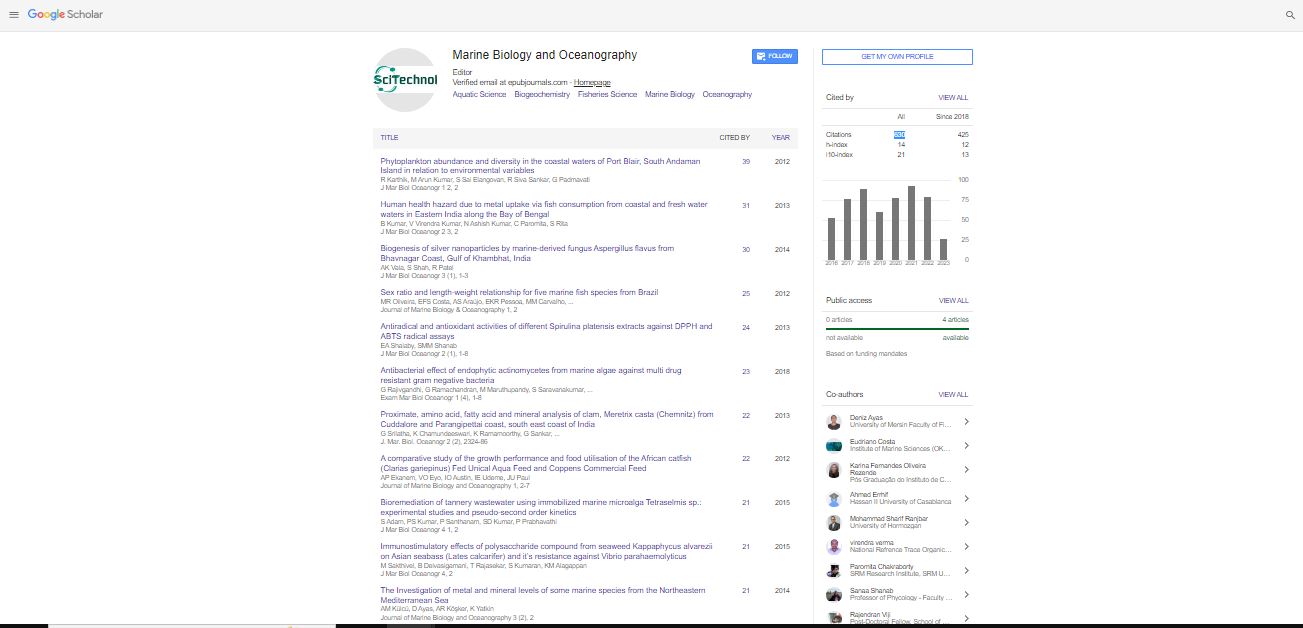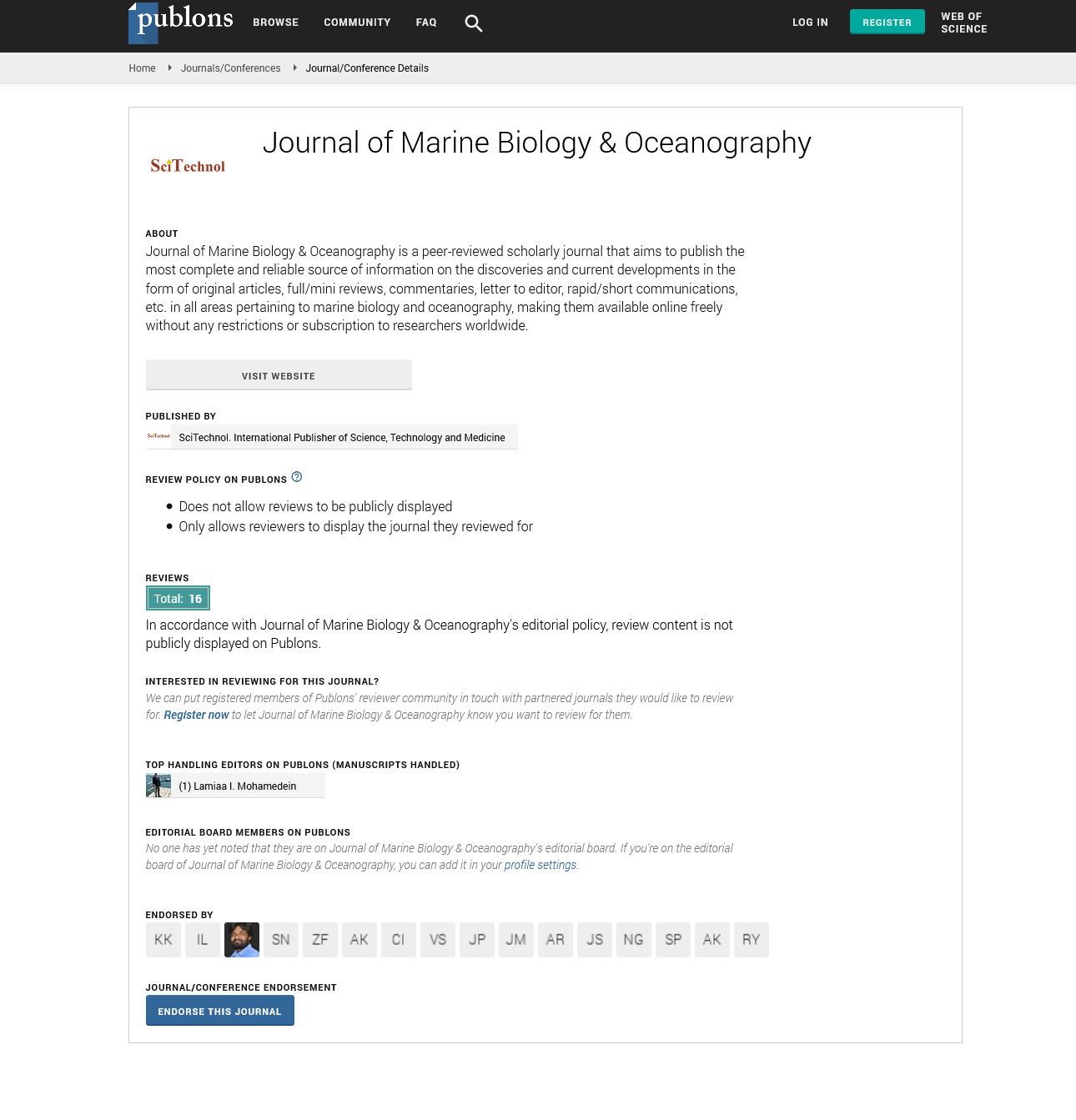The effect of electromagnetic field on behaviour, bioenergetics, geno- and cytotoxic responses in marine polychaete Hediste diversicolor
Magdalena Jakubowska, Urban-Malinga B, Stankeviciute M, Greiciunaite J, Otremba Z and Andrulewicz E
National Marine Fisheries Research Institute, Poland
Nature Research Centre, Lithuania
Gdynia Maritime University, Poland
: J Mar Biol Oceanogr
Abstract
Exploration of renewable energy sources and the urgent need to reduce emission of greenhouse gases, make the wind energy an important alternative to energy derived from fossil fuels. Therefore, offshore wind farms are being constructed at an increasing rate around the world, mainly in marine shelf regions. One of the potential threats for ecosystems connected with operation of wind farms is introduction of magnetic (MF) or electromagnetic fields (EMF) into the environment by submarine cables. Despite the scale of existing and planned investments and ability of many marine animals to perceive the Earth’s magnetic field, research related to impacts of anthropogenic magnetic fields on marine organisms is very scanty, especially concerning EMF. The aim of our study was to assess the effect of artificial EMF on the behaviour (avoidance, burrowing behaviour and bioturbation potential), rates of physiological processes and bioenergetics (energy balance - food consumption, respiration, ammonia excretion, scope for growth), total geno- and cytotoxicity responses in Hediste divericolor from the Baltic Sea. This polychaete is also one of the most important components of marine benthic communities along the Atlantic coast, where it might be potentially exposed to artificial magnetic fields connected with operation of numerous wind farms. Organisms were exposed to EMF during four different experiments lasting 8-12 days, using the experimental setup equipped with spatially uniform EMF generator consisting of two Helmholtz coils. The experimental value of magnetic induction (1 millitesla) corresponded with the range of values in the vicinity of typical submarine cables, transferring alternating electric current.
Biography
Magdalena Jakubowska has completed her PhD in 2016 from University of Gdansk, Poland and currently working at the Department of Fisheries Oceanography and Marine Ecology of National Marine Fisheries Research Institute. So far, her research was mostly focused on determining the effects of different environmental and anthropogenic factors on various aspects of animal's physiology and behaviour, mainly invertebrates but recently also fish. mjakubowska@mir.gdynia.pl
 Spanish
Spanish  Chinese
Chinese  Russian
Russian  German
German  French
French  Japanese
Japanese  Portuguese
Portuguese  Hindi
Hindi 
